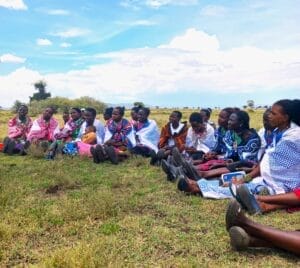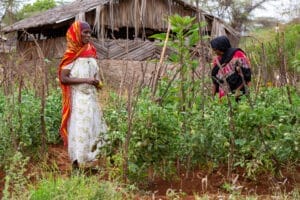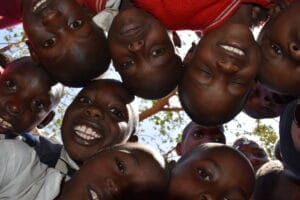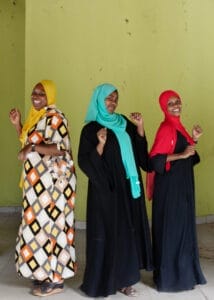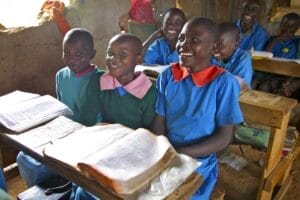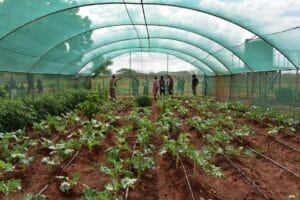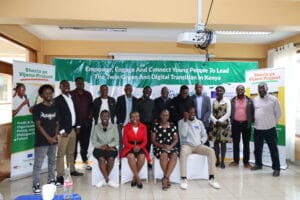
The project contributes to strengthening the capacity and voice of Kenyan civil society, particularly youth-led organizations, as key actors in…
Discover moreWeWorld has been present in Kenya since 2009, demonstrating a long-standing commitment to supporting communities affected by poverty, inequality, and social exclusion. In 2014, Kenya achieved lower-middle-income status, marking economic progress while still grappling with critical development challenges.
As the country with the largest and most diversified economy in East Africa, and the second-largest population, Kenya holds significant potential. However, its development trajectory is undermined by corruption, weak governance, and systemic inequalities.
One of Kenya’s greatest assets is its youth population - educated, ambitious, and ready to contribute to national growth. Yet, the country faces a serious youth unemployment crisis. While the overall unemployment rate in Kenya is 12.7%, youth aged 15–34 - who make up 35% of the population - experience a staggering 67% unemployment rate (Kenya Federation of Employers). This lack of opportunity increases the risk of youth marginalization, crime, and vulnerability to radicalization.
To address these challenges, WeWorld operates in key counties across Kenya: Nairobi, Narok, Migori, Kwale, and Isiolo. Our Kenya country office is headquartered in Nairobi, where we coordinate programs aimed at economic empowerment, youth engagement, education, and social inclusion.
Agriculture remains the backbone of Kenya’s economy, engaging over 40% of the population in at least part-time agricultural activities (FAO). This deep reliance on the sector leaves much of the population highly vulnerable to the impacts of climate change, which directly contributes to food insecurity, particularly among marginalized groups such as young mothers and children.
Although Kenya is experiencing rapid economic growth, stark disparities persist - especially between urban and rural areas, arid and semi-arid regions, and informal settlements. These inequalities limit access to services, opportunities, and essential resources.
Despite policy reforms aimed at promoting gender equality and youth inclusion, women and young people continue to face significant barriers in accessing land, credit, training, and decision-making processes. While their rights are recognized in national frameworks, these commitments often fall short in implementation, leaving many behind in practice.
WeWorld, in collaboration with local and international partners, as well as national institutions and ministries, operates in the counties of Nairobi, Narok, Isiolo, Migori, and Kwale. Across these regions, we implement impactful projects focused on inclusive and quality education, women’s empowerment, environmental protection, health support, conflict prevention, and peacebuilding.
Our approach is rooted in multi-stakeholder engagement, bringing together grassroots communities and institutional duty bearers to co-create sustainable change. We apply an integrated Nexus approach—linking humanitarian aid, development, and peacebuilding—to ensure long-term impact and resilience within the communities we serve.
All our interventions are aligned with Kenya Vision 2030 and contribute directly to the achievement of the Sustainable Development Goals (SDGs), reinforcing national priorities while addressing local needs.
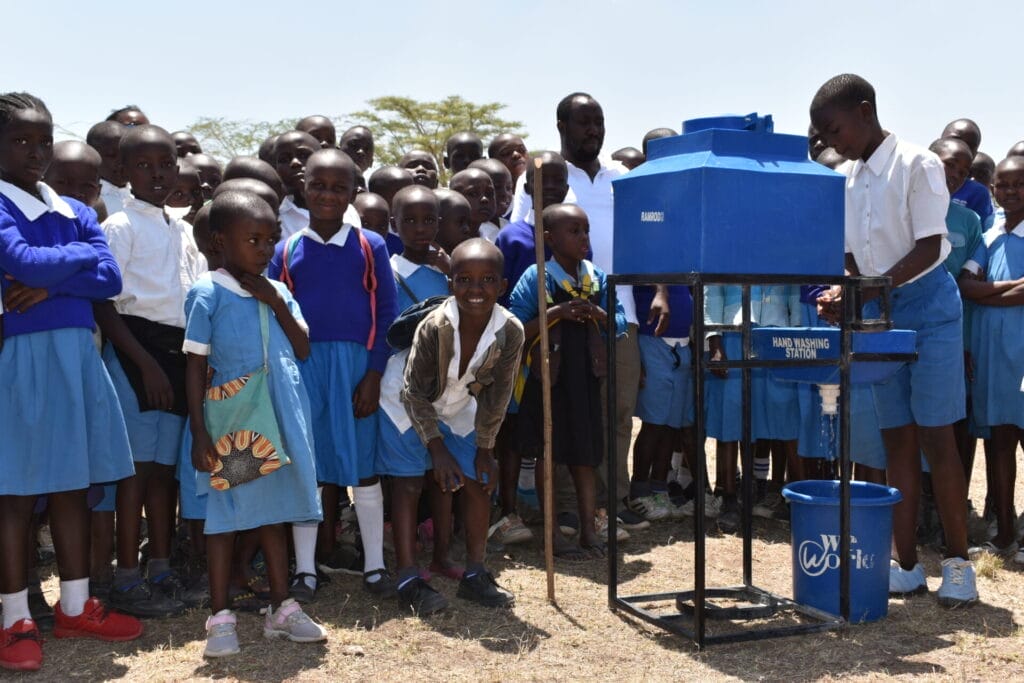
In our education-focused interventions, WeWorld is committed to promoting equitable access to quality education, supporting children’s health and well-being, and improving student performance, retention, and transition rates, while firmly safeguarding children’s rights. Our programs aim to create safe, inclusive, and supportive learning environments for all learners.
Since 2011, WeWorld has been active in the counties of Migori, Homa Bay, and Narok, reaching over 23,584 people - including 1,800 women and 9,385 children. Our approach is grounded in community participation, involving caregivers, teachers, and local leaders in the planning and implementation of activities to ensure sustainability and local ownership.
We collaborate closely with key government agencies and departments, including the Ministry of Education, Ministry of Health, the Children’s Department, and the Department of Gender and Social Services, as well as with other national and local stakeholders. Our shared goal is to eliminate early marriage, teenage pregnancy, and child abuse - barriers that continue to undermine children’s and especially girls' futures.
In the area of gender equality and health, WeWorld partners with the Narok County Government to combat gender-based violence (GBV) through comprehensive, culturally sensitive programs. These initiatives are designed to address the root causes of GBV and build sustainable, community-driven solutions that empower women and protect vulnerable populations.
In Narok, we have established a coordinated response network that unites key duty bearers - including law enforcement, healthcare providers, and community leaders - to collectively tackle gender-based violence. Through education campaigns, victim support services, and policy advocacy, WeWorld is helping to transform institutional responses and shift harmful social norms related to gender issues in the region.
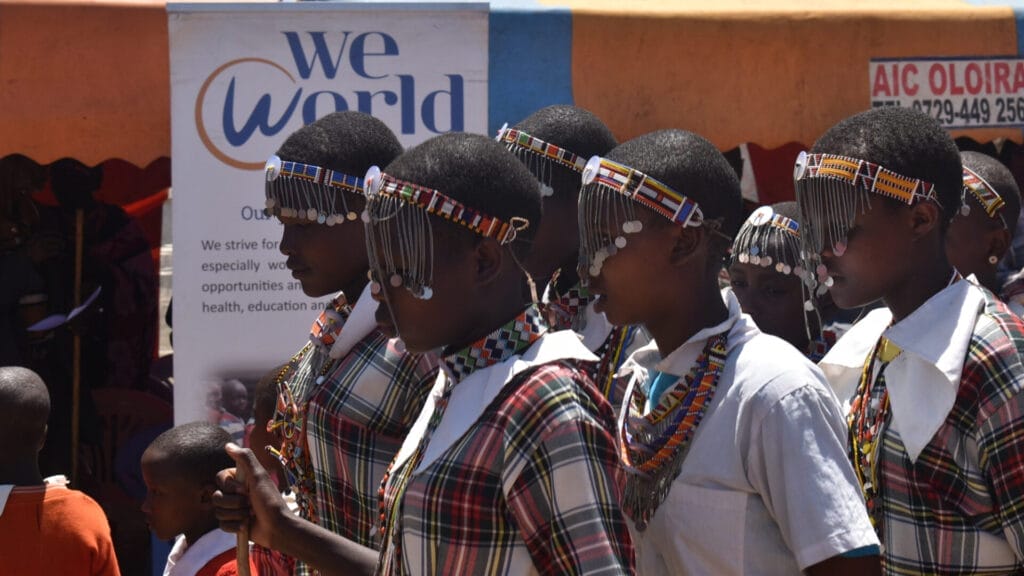
In response to the growing impacts of climate change in Kenya, WeWorld is actively engaged in the counties of Isiolo, Kwale, and Nairobi, with a strong focus on youth-centered civil society engagement. In partnership with the European Union, our programs empower young people to take an active role in climate action and environmental advocacy.
Our initiatives aim to strengthen the capacity, civic voice, and influence of youth, particularly in shaping and participating in climate policy debates and adaptation strategies at both national and local levels. Through a combination of awareness campaigns, advocacy activities, and community engagement, we promote behavioral change and the transformation of social norms around environmental sustainability and climate resilience.
A core element of our strategy is promoting community-led environmental protection and advancing youth leadership in climate justice and green development. These interventions not only help reduce environmental vulnerabilities but also contribute to sustainable local economic development.
To date, our climate-focused programs have reached approximately 4.75 million people in Nairobi, 944,000 in Kwale, and 316,000 in Isiolo, including youth workers, community facilitators, and broader civil society stakeholders.
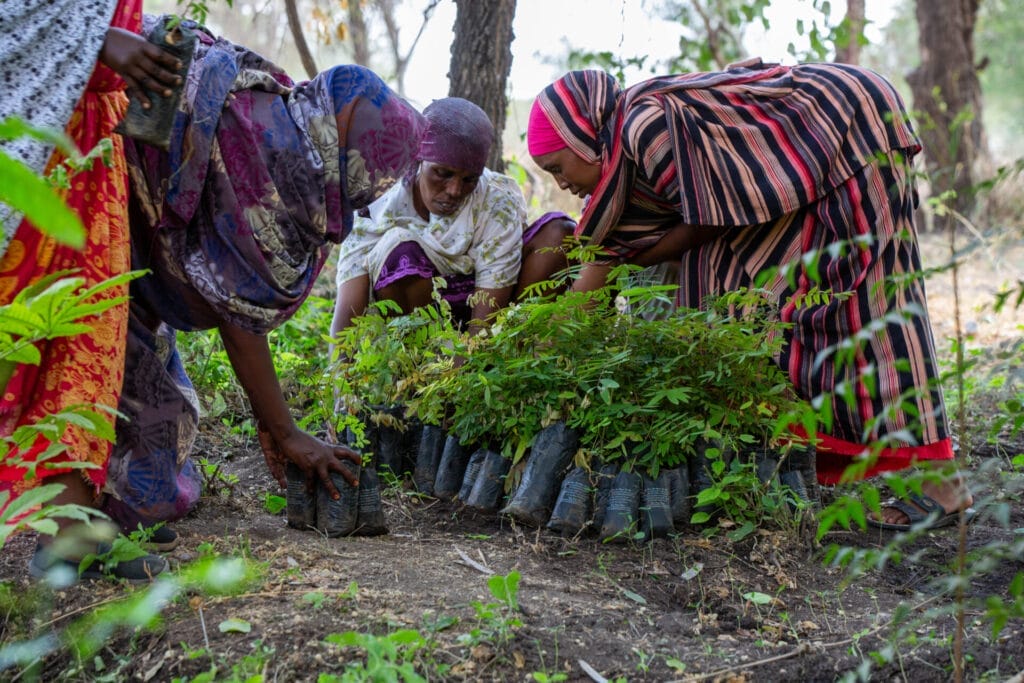
In Kwale County, rising insecurity, extremism, and cross-border radicalization pose growing threats to community stability and social cohesion. In response to this complex environment, WeWorld implements the Kujenga Amani Pamoja project - an initiative focused on peacebuilding, conflict prevention, and social inclusion, grounded in culturally relevant, community-driven approaches.
Through this project, we promote and disseminate peace-centered Swahili cultural practices as powerful tools for conflict resolution and communal harmony. Working in close collaboration with youth-led networks and organisations - both formal and informal - we empower young people to become active agents of peace in their communities.
To date, the project has reached approximately 12,100 people, strengthening local capacities for dialogue, tolerance, and non-violent conflict resolution. By integrating cultural identity with youth civic engagement, our approach supports sustainable peace and resilience in one of Kenya’s most vulnerable regions.
WeWorld interventions in Kenya are possible thanks to the support of European Union, Education Above All Foundation, Italian Agency for Development Cooperation, Provincia Autonoma di Bolzano, IVECO, and thousands of private individuals and families who support our projects.
The project contributes to strengthening the capacity and voice of Kenyan civil society, particularly youth-led organizations, as key actors in…
Discover moreThe context In Kenya, despite a favourable gender equality legal framework, serious inequalities between men and women persist, especially in…
Discover moreThe context Only a slim majority (53%) of Kenyan citizens know about climate change, however of those who were aware…
Discover morePAMOJA TUDUMISHE ELIMU: Together to strengthen Quality Education and Children Retention project aims at engaging and retaining students who are…
Discover moreThe project WORLD aims at encouraging intercultural dialogue with third countries and increasing tolerance through online people-to-people interactions, building on digital, youth-friendly technologies. The project…
Discover moreThe context Kenya Despite the sustained economic growth in the last few years, Kenya is still faced with acute socio-economic…
Discover moreWeWorld intervention in Migori and Homa-Bay Counties aims at contributing towards the realization of an Enhanced Access to Quality Education…
Discover moreWeWorld’s intervention in Isiolo county aims to increase resilience to acute drought and climate change in the arid and semi-arid…
Discover more